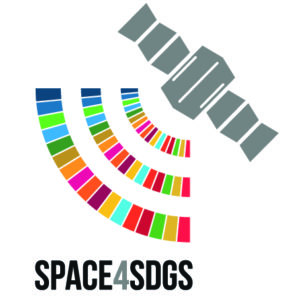
Trade
A Day in the Life of the Incoterms® Rules with Daniela María Rojas García
The International Chamber of Commerce (ICC) sat down with Daniela María Rojas García to discuss the future of the Incoterms® rules in space.
Listen now on Spotify | Apple Podcasts
TC: Hello my name is Tim Conley and I am the Global Communications Officer at the International Chamber of Commerce. Welcome to A Day in the Life of the Incoterms® rules. ICC is the international body that drafts and maintains the Incoterms rules. As part of this series and in anticipation for the launch of Incoterms® 2020, we are going to sit down and talk with the users of the Incoterms® rules.
On today’s episode, I will be discussing the Incoterms® rules with Daniela Maria Rojas Garcia. Daniela is an LLM Candidate in the Advanced LLM Programme Air & Space Law at Leiden University in the Netherlands. Before moving to the Netherlands, Daniela was working in international arbitration with a specific focus on transport law. We spoke about her experience with the Incoterms® rules as a student as well as the future of the Incoterms® rules in space.
I hope you enjoy today’s episode.
***
TC: You are currently a student at Leiden University in the Netherlands, what path did you take to get there? What inspired you to study at Leiden?
DRG: While I was in law school I decided to go into transport law, so after graduation I decided to take a specialisation course in transport law, back in Colombia. After that, I decided to specialise in one field of transport because I was working in international arbitration, so I wanted to find a specific field of law where I could be an expert in arbitration for that field. I ended up going with air law initially, and that’s how I picked the LL.M. programme here at Leiden and it turns out that I also like space law. I took space law in my second semester of the programme, and now I have a specialisation in both air and space law.

TC: Tell me about air law and space law, as you said it is a specialised field and obviously right now and in the future there are emerging challenges, could you talk a bit more about those?
DRG: Traditionally it has been a closed field, traditional lawyers will tell you that it is an exclusive regime that doesn’t have to do with other regimes but the new trend is that all fields of law are intertwined with each other, so we see more and more how air law started to have relations outside of the bilateral agreements, that countries have to allow the airlines to come in and go out. In air law we now see that some contracts have arbitration clauses instead of going to the domestic court and because of this new trend of going outside the field itself, it has gotten a lot broader and the study of law has become more interdisciplinary. Space law is a very new field, we do not see a lot of disputes but we do see dispute resolution clauses that involve arbitration, however the industry is so young, no one wants to fight yet and everyone is cooperating. When there is a problem with a contract, usually the parties will go to settle it in a way that it allows the project to continue so we don’t have a lot of disputes in the space sector at the moment.
TC: How do the Incoterms® rules fit into your study?
DRG: When I was studying general transportation law in Colombia I had my first look at the Incoterms® rules, during logistics and infrastructure lectures and multimodal transport lectures. So from that point forward we started studying not only the multimodal transportation itself, but the whole structure of trade transactions. In that moment I started to understand what the Incoterms® rules are, I didn’t know about them before. When I started studying air law, I saw that a big part of the multimodal transportation had to with air law and the Incoterms® rules. The programme really focuses on transportation itself, so we really just had a broad overview of the Incoterms® rules, but we did not go further into details.
TC: Given your experience and what you study, do you think the Incoterms® rules compliment other forms of international law? Could they be used as an inspiration for constructing other legal principles?
DRG: Yes, I think they do. The Incoterms® rules have adapted to different needs and I wouldn’t say that I prefer one or the other because it depends on the transaction but I do think that they are useful into unifying the terms in which the parties interact with each other and in the way that the contract in general or a specific kind of transaction will tend to have the same patterns and same terms. It is very useful that all parties engaged in international trade law kind of speak the same language, even if it’s not completely unified or binding to apply specific terms, so that’s very useful for facilitating trade.
TC: You originally learned about the Incoterms® rules in Colombia, and then once you got to the Netherlands in Europe they were mentioned again. You have seen the Incoterms® rules from Latin America as well as Europe, do you think they were taught similarly or was there a difference in the approach?
DRG: They were taught in a very similar way, the specialisation programme was International Transport Law so it was from a very international perspective. Because we have a lot of flows and needs and critical points for improvement, not only in Colombia but in Latin America in terms of infrastructure in transport itself, there is not a lot of multimodal infrastructure to begin with. From a regulatory point of view we do have the regulation for multimodal transportation but it does not go as far to regulate how the transaction itself should be made, it is left to the parties’ discretion. I saw from early on that parties were very willing to apply the Incoterms® rules and to deal with each other in an international manner, they try to be at the same level that other players in the same field would do it outside of the country or even outside the continent.
TC: Do you find that certain Incoterms® rules in particular are more important or more applicable that others? Are there certain Incoterms® rules that you consider potentially not practical or not useful?

DRG: I wouldn’t say that a specific Incoterm® rule is not useful at all because as I said, they very much adapt to the needs of each contract and the good thing is that negotiating parties have such a broad range of options, that they would just adapt the one looking most similar to their needs. I do not think that narrowing down the rules or choosing some as more useful than others would really help, it’s better to give the party the option to have model clauses for as many options possible because each relationship will be different.
TC: With Incoterms® 2020 coming up for launch and publication, would you change anything about the current Incoterms® rules and what do you expect to see in the new rules?
DRG: Some of the papers and critiques I’ve read said that maybe some of the terms are not necessarily aligned with the custom, especially here in Europe. I cannot personally say if that is accurate but I would take the new trends and new customs and incorporate them in the terms. The most important part of the Incoterms® rules is that they really adapt to the parties needs and the moment they stop adapting they stop becoming useful and the international trade does not have the luxury to have terms that are out of date. For example, in the future we are going to start having extra-terrestrial transport. We need to consider not only how the transport is going to be made, but also responsibility, transfer of risk and allocation of costs. At some point we are going to need the Incoterms and all relevant customs to be in accordance with that kind of transportation which will be faster and more risky. So Incoterms really need to take that into account and see what other transportation trends are developing, because this is going to happen in the next couple of years.
TC: This is something ICC hasn’t fully considered yet, the idea of transporting goods to other planets is very fascinating, but as you said it relies on this relationship of an importer and an exporter.
DRG: Yes, and it is not only between planet Earth and somewhere abroad, outside of planet Earth, but also between different countries, going outside of the Earth and coming back in will be much faster than going straight on the Earth’s surface. So that will play into the delivery time, if a good takes a month to arrive from one place to another via ship, it might take a week instead with new transportation technology, it will be more immediate. The contractual terms need to be in tone with that because when you have a month to plan the shipment, you have a lot of time for coordinating everyone. But when transportation will become more immediate, you need to be able to respond just as fast. I guess this is something the organization will have to consider very soon and start developing something to adapt to that.
TC: Are there treaties or legal instruments that are being formed right now to address some of those key issues in space law? You mentioned before the possibility to leave the atmosphere and go to a different country. Have there been any efforts to define important subjects to international law such as territorial jurisdiction?

DRG: In the space field, we have five main treaties, however those treaties were developed very early on, back in the 70’ and 80’. They were usually state to state obligation. Now, all of the extra-terrestrial activities are supervised by state but can be performed by a private entity. This is why very soon this kind of transportation of goods and people will be very feasible. Right now, NASA will open the International Space Station for Touristic Travel. The United Nations and UN Corpus are looking into the different developments and technological advancements that are allowing for a commercial use of outer space and of the outside layers of the atmosphere. So the moment this technology becomes feasible, that’s the moment they will look into it in more detail, space mining would be a viable option. We started to see some developments on law concerning activity outside of Earth, although there is no territorial jurisdiction outside of Earth, there is a need to use it commercially, not just for the exploitation of resources but for transportation itself. It is in that moment where commercial trade will become more relevant than it is right now.
TC: What are your plans after graduation?
DRG: Initially, my idea was to come to Leiden to get this specific knowledge and go back to arbitration with it, but right now I have a lot of options open, I would consider working in the industry itself but to be honest, my biggest passion is arbitration.
TC: That is all I have in terms of questions, it was very fascinating to hear your perspective in regards to such a specialised field and in the future. If you have other ideas you would like to share, feel free, I’ll give you the last word.
DRG: As a last remark, I would like to say that I have been following the ICC, especially given that I am involved in arbitration and I do think it is lagging behind on these new developments. Air and space law are something I haven’t seen fully developed by the ICC and I believe it is of great importance for the organisation to be updated on these matters. There are a lot of disputes coming up and of course, the Incoterms make it a lot easier in terms of what the rules were at the beginning of the relationship whenever there is a dispute between the parties but as I said, we need rules that are more specific to certain kinds of international transactions and certain types of activities and so I would like to see the ICC get involved further.
***
TC: Thanks for tuning into this episode of A Day in the Life of Incoterms.
We would like to give a special thanks to Daniela for participating in today’s episode.
Incoterms 2020 will be launched in early September 2019. For all of the latest news and updates regarding Incoterms 2020, please visit the International Chamber of Commerce’s website at iccwbo.org. That’s iccwbo.org.
Share your thoughts about today’s episode on Twitter, Facebook, or LinkedIn using #Incoterms2020.
See you next time.
Special thanks to Anis Anghel for transcribing this interview and Jeff Dombrowski for creating the cover art for A Day in the Life of the Incoterms® Rules.

